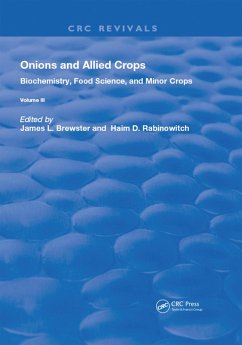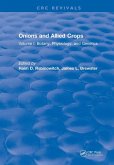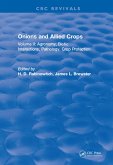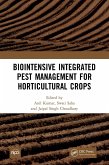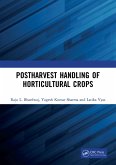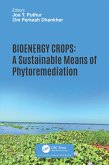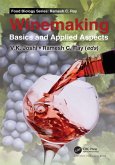James L. Brewster, H. D. Rabinowitch
Onions and Allied Crops (eBook, ePUB)
Volume III: Biochemistry, Food Science, and Minor Crops
52,95 €
52,95 €
inkl. MwSt.
Sofort per Download lieferbar

26 °P sammeln
52,95 €
Als Download kaufen

52,95 €
inkl. MwSt.
Sofort per Download lieferbar

26 °P sammeln
Jetzt verschenken
Alle Infos zum eBook verschenken
52,95 €
inkl. MwSt.
Sofort per Download lieferbar
Alle Infos zum eBook verschenken

26 °P sammeln
James L. Brewster, H. D. Rabinowitch
Onions and Allied Crops (eBook, ePUB)
Volume III: Biochemistry, Food Science, and Minor Crops
- Format: ePub
- Merkliste
- Auf die Merkliste
- Bewerten Bewerten
- Teilen
- Produkt teilen
- Produkterinnerung
- Produkterinnerung

Bitte loggen Sie sich zunächst in Ihr Kundenkonto ein oder registrieren Sie sich bei
bücher.de, um das eBook-Abo tolino select nutzen zu können.
Hier können Sie sich einloggen
Hier können Sie sich einloggen
Sie sind bereits eingeloggt. Klicken Sie auf 2. tolino select Abo, um fortzufahren.

Bitte loggen Sie sich zunächst in Ihr Kundenkonto ein oder registrieren Sie sich bei bücher.de, um das eBook-Abo tolino select nutzen zu können.
Originally published in 1990, Onions and Allied Crops , is a comprehensive account of the edible allium, examined across three volumes.
- Geräte: eReader
- ohne Kopierschutz
- eBook Hilfe
- Größe: 7.12MB
Andere Kunden interessierten sich auch für
![Onions and Allied Crops (eBook, ePUB) Onions and Allied Crops (eBook, ePUB)]() H. D. RabinowitchOnions and Allied Crops (eBook, ePUB)198,95 €
H. D. RabinowitchOnions and Allied Crops (eBook, ePUB)198,95 €![Onions and Allied Crops (eBook, ePUB) Onions and Allied Crops (eBook, ePUB)]() H. D. RabinowitchOnions and Allied Crops (eBook, ePUB)223,95 €
H. D. RabinowitchOnions and Allied Crops (eBook, ePUB)223,95 €![Biointensive Integrated Pest Management for Horticultural Crops (eBook, ePUB) Biointensive Integrated Pest Management for Horticultural Crops (eBook, ePUB)]() Biointensive Integrated Pest Management for Horticultural Crops (eBook, ePUB)54,95 €
Biointensive Integrated Pest Management for Horticultural Crops (eBook, ePUB)54,95 €![Postharvest Handling of Horticultural Crops (eBook, ePUB) Postharvest Handling of Horticultural Crops (eBook, ePUB)]() Raju L. BhardwajPostharvest Handling of Horticultural Crops (eBook, ePUB)198,95 €
Raju L. BhardwajPostharvest Handling of Horticultural Crops (eBook, ePUB)198,95 €![Bioenergy Crops (eBook, ePUB) Bioenergy Crops (eBook, ePUB)]() Bioenergy Crops (eBook, ePUB)55,95 €
Bioenergy Crops (eBook, ePUB)55,95 €![Winemaking (eBook, ePUB) Winemaking (eBook, ePUB)]() Winemaking (eBook, ePUB)88,95 €
Winemaking (eBook, ePUB)88,95 €![Cereal Crops (eBook, ePUB) Cereal Crops (eBook, ePUB)]() Cereal Crops (eBook, ePUB)52,95 €
Cereal Crops (eBook, ePUB)52,95 €-
-
-
Originally published in 1990, Onions and Allied Crops, is a comprehensive account of the edible allium, examined across three volumes.
Dieser Download kann aus rechtlichen Gründen nur mit Rechnungsadresse in A, B, BG, CY, CZ, D, DK, EW, E, FIN, F, GR, HR, H, IRL, I, LT, L, LR, M, NL, PL, P, R, S, SLO, SK ausgeliefert werden.
Produktdetails
- Produktdetails
- Verlag: Taylor & Francis eBooks
- Seitenzahl: 284
- Erscheinungstermin: 23. März 2020
- Englisch
- ISBN-13: 9781000709582
- Artikelnr.: 58879758
- Verlag: Taylor & Francis eBooks
- Seitenzahl: 284
- Erscheinungstermin: 23. März 2020
- Englisch
- ISBN-13: 9781000709582
- Artikelnr.: 58879758
- Herstellerkennzeichnung Die Herstellerinformationen sind derzeit nicht verfügbar.
Haim D. Rabinowitch, Ph.D., is an Associate Professor at the Faculty of Agriculture, The Hebrew University of Jersalem, Rehovot, Israel and currently leads the Group of Vegetable Physiology and Breeding. Prof. Rabinowitch graduated from the Hebrew University of Jersalem, in 1965, obtained his M.Sc. (suma cum laude) in 1967, and received his Ph.D. in 1973 from the same university. He was appointed Lecturer in Vegetable Production at his alma mater in 1976, promoted to Senior Lecturer in 1981, and to Associate Professor in 1986, at Rehovot. He did post-doctoral work at the Department of Applied Genetics, the John Innes Institute, Norwich England, from 1974 to 1976. In 1981-1982 and in 1986-1987 he spent sabbatical leaves at the Department of Biochemistry, Duke University Medical Center Durham, North Carolina Prof. Rabinowitch is a member of the American Society for Horticultural Science, The International Society for Horticultural Science, The Scandinavian Society for Plant Physiology, and EUCARPIA. He is a member of the National Vegetable Commodity Committee and of the Professional and Research Committees for Onion Breeding and Production, and for Seed Production, of the Israel Ministry of Agriculture; Member of the Working Group on Allium, the European Cooperative Group for the Conservation and Exchange of Crop Genetic Resources, the International Board for Plant Genetic Resources (IBPGR); served as a consultant to the IBPGR on Germplasm Conservation of Allium species; in charge of the IBPGR Global Field Bank for vegetatively propagated short-day Allium species; and recipient of the American Society for Horticultural Science, National Food Processing Association Award in raw products research for 1983. Prof. Rabinowitch published more than 45 scientific papers, developed 2 tomato cul- tivars, and 3 short-day F, onion cultivars for fresh market and for the dehydration industry. His current research interests are in physiology and breeding of alliaceous and some Solanaceae crops, and in the protective mechanisms against oxygen toxicity in plants. James L. Brewster, D.Phil is a Principal Scientific Officer in the Crop Production Division, Institute of Horticultural Research, Wellesbourne, Warwick, U.K. Dr. Brewster graduated in 1966 from Wye College, University of London, with a B.Sc (Honors) degree in Agricultural Science and obtained his D.Phil degree from the University of Oxford in 1971. He remained at Oxford working on the quantitative modeling of nutrient uptake by plant roots until transferring to Wellesbourne in 1974. Dr. Brewster is a member of the Society of Experimental Biology, Association of Applied Biologists, and Institute of Horticulture. He is an Associate Editor of the Journal of Horticultural Science. He is a member of the Onion panel for the National Institute of Agricultural Botany, U.K. He has frequently presented lectures on aspects of his work at scientific and technical meetings in the U.K. and Europe. Throughout his research career he has been concerned with aspects of the physiology of alliums and has authored 33 research papers covering aspects of the nutrition, flowering, growth rate, control of bulbing, and agronomy of these crops. The main theme of his research is to obtain quantitative relationships for the environmental control of physiological processes and to apply these to understand and predict growth in the field.
